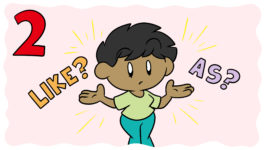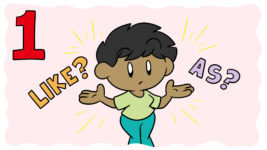Getting characters to live and breathe on the page can be tough, can’t it? Sometimes we think we’ve achieved complexity and then we’ll read a line or a page and realize that what we really have is just a cardboard cutout going through the motions. If you’re struggling with character work, one technique to try for getting inside your characters’ psyche, deep into their hearts and minds, is to interview them.
What could I possibly learn from interviewing my characters? You ask. They’re from inside my own mind, after all. It’s true, but you might be amazed at what’s lurking unseen in your subconscious. Sit down across from your (imagined) literary friends, get out your pen and paper, and ask them to open up about their deepest selves.
I think you’ll be surprised at what they have to say.
Desire can be deceiving
You might think you know what’s driving your protagonist. He wants that new job and he’s willing to go to any lengths to get it. She has to marry her high school sweetheart or life her life will fall apart. But is that really what’s driving him or her at the deepest level? Are those truly their most desperate desires?
Sometimes the outward goals of our characters are symptoms of a deeper need. If that’s true, how might it change the way they feel and act in their quest to get those external things they seem to desire above all else?
I think of Frodo’s journey to get the One Ring to Mount Doom in Tolkien’s The Lord of the Rings. That may be the spoken external goal, but there’s more complexity just below the surface. More than anything, Frodo wants to protect The Shire—its people and way of life. And, at least in the beginning, his desires have more to do with a need for adventure, for getting out the door and down the road a bit. It’s really those desires that fuel the story more than the outward goal of destroying the ring.
So, let’s get to the bottom of your characters’ desires. Here are a few questions you can ask them:
What do you long for more than anything else in the world?
When do you feel most happy, most at peace?
What’s the one thing that, if you lost it, would most devastate you?
At the end of your life, what one thing will you most regret if you neglect it now?
How will reaching your goal change your life?
Fear as a prime motivator
Do you sometimes find your characters doing things that surprise you? They’ll make a choice or a statement you didn’t see coming or that doesn’t quite fit with what you know of their personality. Stop there and dig a little deeper, see if there isn’t a root of fear lurking beneath the surface. Fear is a strong and elusive motivator.
Think of your own behaviors, language patterns, and routines. How are they informed by hidden fears and insecurities? This one is especially challenging to recognize because fear is a deceitful little thing, a chameleon. It doesn’t want to be found, but it’s so often the key to understanding our actions, words, and feelings.
Remember Jay Gatsby of Fitzgerald’s The Great Gatsby. He’s a giant of a man; a man of glowing reputation, wealth, and mystique. But you don’t have to dig down far to find that his is a persona very carefully crafted by fear and insecurity. He’s got a past he’s ashamed of that he wants to hide at all costs, and he’ll do anything to bury the person he once was. It’s not hard to see how that might complicate Gatsby’s other desire for love and friendship.
What role does or should this idea play in your own story? Here are some questions to get your characters opening up about their hidden fears:
What are you most afraid of?
When was a time that made you feel vulnerable, out of control?
What’s the worst thing you imagine happening to you or the person you love most?
What’s the one thing you don’t want anyone else to know about you?
If people could see your deepest self, how would it change their image of you?
The hidden power of belief
Another invisible force often pulling the strings of our characters is belief. Religious belief, superstition and premonition, or sometimes the expectations other characters hold them to. Belief profoundly affects the way we act and speak and behave in the world, whether we’re conscious of it or not. The same is true in the world of your story; understanding and using the hidden forces of belief is one of the most powerful character-building tools you have.
How about Darcy, the proud and aloof gentleman of Austen’s Pride and Prejudice? His deeply held belief of his own superiority has him looking down his nose at his neighbors and nearly costs him a great love. Fortunately, Elizabeth manages to see through appearances down to the heart of the man. Thanks to her, both Darcy and the reader realize that it’s largely the voices of his family and the forces of his upbringing responsible for his faulty beliefs and bad behavior. He reforms his prejudice in the nick of time.
Which of your characters is operating out of belief? What voices or expectations are driving them in ways that misdirect their lives and keep them from reaching their goals? Here are a few questions to get your characters opening up:
Whose opinion matters most to you?
Who would you most hate to disappoint?
What’s one thing that you believe to be fundamentally true about the world?
What values were most important in your house and your family upbringing?
How would you describe your personal moral code?
Writing compelling characters can be so challenging. It’s tempting to just put them on the page without thinking too deeply about them. But I hope you’ll do yourself a favor and take the time to question where their behaviors, thoughts, and feelings are coming from. It’s precisely that in-depth character work that makes the people in your story more complex and nuanced. I can promise you too that other elements of your story—plot, tension, theme, voice, etc.—will only get stronger the deeper your characters become.
What surprising things have you learned about your characters? How has deepening your character work strengthened your story? What are some other questions you ask to get your characters opening up to you?






10 thoughts on “Struggling To Connect To Your Characters? Interview Them”
I am writing a sci fi story where two of my main characters after losing there parents become close and over time fall completely in love with each other. The guy is basically a general and to everyone else is a pillar of strength the woman is the only one he allows to see his weaknesses. I was just wondering if you had any advice on how to build the relationship?.
Hi Aaron,
Your story concept sounds really interesting! The essential component to strong love stories is tension; you want readers to be on the edge of their seat, wondering if these two people are ever going to get together. One of the best ways to maintain and grow that romantic tension is to keep throwing obstacles in the way of your characters having a relationship. Use both internal and external obstacles to draw out that uncertainty. The romantic arc is all about overcoming those obstacles, pulling the lovers closer in the process, and finally bringing them together at the climax of that arc.
As a quick example, think about Han Solo and Princess Leia. Initially, it’s internal forces like their own pride and stubbornness that keep them apart. But once those issues are resolved, a series of external forces stand in the way of their love. And there’s that delicious tension—will Han and Leia ever get together?
So, this is your task in bringing your two lovers together. What internal and external obstacles stand in their way? Use these to slowly grow the tension over the course of the story and then in the climax, help them overcome these troubles and find a way forward together. I hope that helps!
Really appreciated this., Thank you.
Hi Katy,
Thanks for the feedback. I’m so glad you found this article helpful!
Paige
So I am writing a sci-fi there are 2 primary protagonists,2 siblings. The girl is a tech genius and sarcastic. She is basically the smart one and the trickster rolled in one. And an ex drug-addict.She acts distant buts saves her brother every time he is in trouble. The older brother is all the hero kind. The siblings love each other and would die for each other but the girl is usually belittled for everything she does even as she saves the day.
I was wondering if you could help with their relationship.
There are 2 primary protagonists of my story,2 siblings. The older brother is the archetypical hero. The younger sister is the story attraction,she is a tech genius,drug addict and pretty cold. She ran away from home. Pretty much the prodigal kid. She is the antihero kind. But both the siblings love each other and would die for each other. The brother says this out loud. The sister does not.
How do I develope their relation which is pretty pivotal to the plot.
Hi Alex,
Your protagonists sound complex and interesting! I can see how developing the dynamics of this sibling relationship could be challenging. That’s what I love about the advice in this article: taking a step back from actively writing our characters to ask them questions and imagine their answers can birth a wealth of insight. If you haven’t already, I encourage you to work through the activity we outline in this article. Ask both protagonists these series of questions about their deepest fears, greatest desires, most closely held beliefs. Their answers might provide you the missing pieces you need to shape their relationship and its impact on the plot.
Paige
Thank you so much for publishing this article! It made me learn a few things, one of which is the fact that the more developed your character is, the harder it is to kill them off in a story, therefore prolonging the length of the story itself. It’s incredibly interesting!
Hi Skipperverse,
Our pleasure, I’m glad it was useful. You may also be interested in the below article, which builds on the point you mentioned.
How (And When) To Kill A Character
Best wishes,
Rob
Hi,
I’m a 15 year old who sort of has history with mental health myself and I never got it diagnosed. Because the pain I have gone through, I have decided to write a mental health book. However I’m confused which mental illness should my character be given. Please do advise on this.